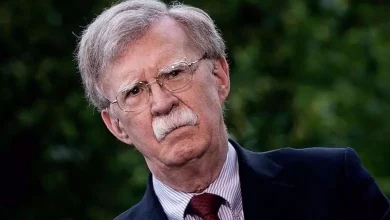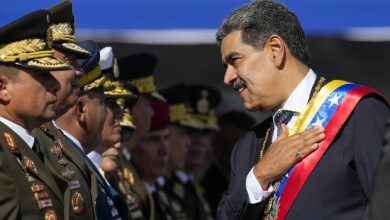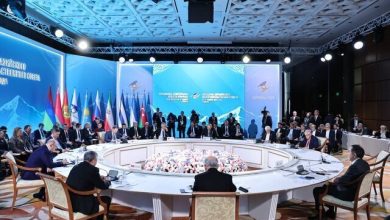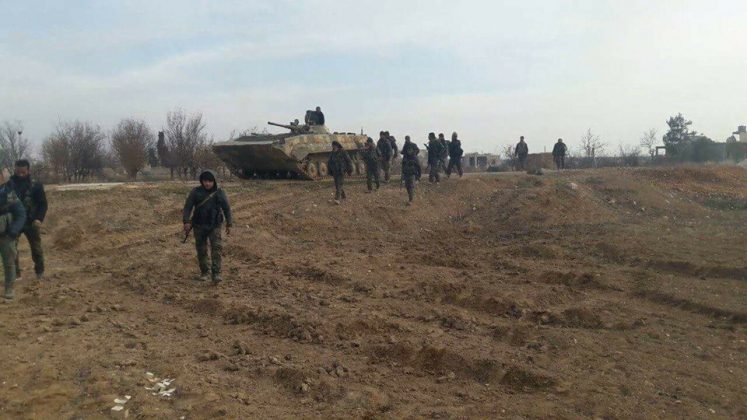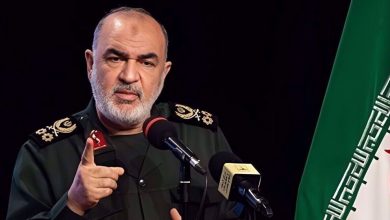Snippets of sermons by Imam Sayyed Ali Khamenei at Tehran’s Friday prayers
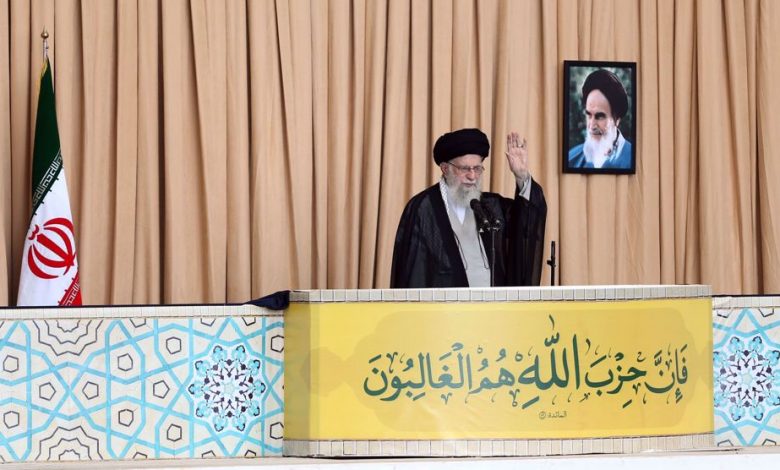
The leader of Iran’s Islamic Revolution addressed Tehran’s Friday prayers this week, calling for Muslim unity in response to the atrocities committed by the Israeli regime, which he characterized as America’s “rabid dog” in the region.
Ayatollah Seyyed Ali Khamenei told a packed ceremony that Muslims face a common enemy and warned that failure to support those oppressed by this enemy could lead to further targeting of their own nations.
In his sermons, the leader reflected on the impact of the loss of Hezbollah Secretary General Sayyed Hassan Nasrallah, who inspired hope and resilience in the face of adversity.
The leader praised the resilience of Hezbollah and Hamas, despite the loss of key figures and aggression from Israeli and American forces, advocating for the pursuit of security through collective effort.
He said Iran experienced the assassination of prominent revolutionary figures during the 1980s; each one was a pillar of the revolution. However, following their martyrdom, the march of the revolution intensified and resistance continued to grow stronger, he added.
The prayers, held almost a week after the martyrdom of Nasrallah, featured an emotional farewell to the long-time leader of the Lebanese resistance, who was martyred in an attack by the Israeli regime on civilian areas in southern Beirut last week.
Here are key snippets from Ayatollah Khamenei’s remarks:
First sermon:
- If Muslims are united, they can access God’s unlimited power and benefit from divine principles that favor them.
- Quranic teachings emphasize that Muslims have velayat, or guardianship, over one another. When Muslims stand united and cohesive, they can overcome all obstacles and defeat their enemies.
- This unity counters the strategies employed by adversaries who seek to divide the Muslim Ummah through various deceptive tactics. However, Muslims are becoming increasingly aware, and the collective strength of the Muslim nation can prevail against such deceit.
- The enemy of the Muslim world is also the enemy of Palestine, Lebanon, Syria, Egypt, Yemen, and other nations. This enemy employs diverse methods to dominate Muslim countries—sometimes through diplomacy and sometimes with military force or economic sanctions. Yet it remains a singular adversary.
- If this enemy can conquer one nation using these tactics, it will inevitably target others. To resist this pressure, nations must remain vigilant and support those under attack.
- Muslims have long neglected their struggle against this enemy, resulting in significant consequences.
- Islamic defensive rulings outline our responsibilities, while international law establishes our objectives: every nation has the right to defend its territory against aggressors.
- This means that the Palestinian people have the right to resist those who have destroyed their homes and farmland—a fact recognized by many.
- No international tribunal or organization has the authority to challenge Palestinians in their fight against the Zionist regime.
- Likewise, no entity can criticize Hezbollah for supporting the Palestinian uprising; such actions align with Islamic principles, wisdom, and logic.
- All recent attacks, particularly Operation al-Aqsa Storm, represent legitimate and lawful actions taken by Palestinians in self-defense against ongoing aggression.
- The courageous support of the Lebanese people for Gazans is equally logical and legitimate. Furthermore, Iran’s Operation True Promise II was entirely legal and justified.
- The actions of our armed forces were a necessary response to the horrific atrocities committed by the Zionist regime—America’s “rabid dog” in the region.
- The Islamic Republic of Iran will decisively and resolutely fulfill its responsibilities in this matter. We will neither procrastinate nor rush in executing these duties.
- What is logical will be acted upon at the appropriate time, and future actions will be taken as deemed necessary by Iran.
Second sermon:
- The loss of the shining jewel of Lebanon, Sayyed Hassan Nasrallah, is a profound tragedy. He played a pivotal role in reviving hope and inspiring others through his indomitable spirit and will.
- The essence of our mourning for Nasrallah mirrors our mourning for Imam Hussein; it revives, inspires, and fosters hope. His spirit and will remain with us forever.
- Nasrallah was a steadfast supporter of those who fought for righteousness, encouraging their efforts.
- He nurtured Hezbollah like a seed that has flourished into a powerful force, igniting faith and resisting adversaries.
- The assassination of Nasrallah represents an accumulation of sacrifices; however, rather than weakening us, such losses have strengthened our resolve.
- It is incumbent upon all Muslims to defend against resource usurpation and confront America’s role in safeguarding its entity’s security.
- The Zionists and Americans are deluded in their belief that their entity will remain stable. The Zionist regime is inherently unstable, relying heavily on American support which has only exacerbated its challenges.
- The regime’s expenditures on aid from America and Western countries stand in stark contrast to its limited achievements.
- America’s focus on preserving this entity’s security is part of its broader policy aimed at controlling regional resources. Yet they have ultimately failed.
- The clear evidence of this failure lies in billions spent bombing Gaza and Lebanon over the past year—achievements that amount to nothing more than destruction of schools, hospitals, and homes.
- Iran experienced the assassination of prominent revolutionary figures during the 1980s; each one was a pillar of the revolution. Losing them was a significant blow; however, despite these losses, the march of the revolution intensified and resistance continued to grow stronger.
- The criminal regime ruling the occupied territories has made no progress over the past year and has reached a point where its primary concern is merely preserving its existence.
- The main challenge in the region is foreign interference. Regional countries should be dedicated to establishing peace and security. Achieving this noble goal requires sustained efforts.
